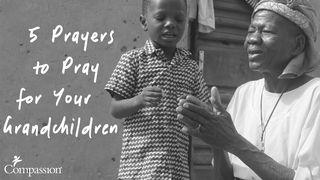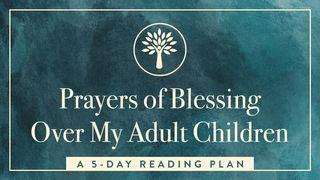Grandparenting The Next Generation By Stuart BriscoeSample

What Type Are You?
As aging grandparents grandparent aging grandchildren, both parties must invest in the ever-changing relationship. If the relationship is to flourish, it will require flexibility, adaptability, and patience on the part of the senior members, and a maturing approach to relating on the part of the juniors. As the former slow down, the other speeds up; as the elders reiterate their firm convictions, the young ones introduce new concepts; as one looks back with nostalgia, the other gazes forward full of enthusiasm and idealism.
Of course, not all grandparents are the same and styles of grandparenting differ, owing to changing circumstances. For example:
- Grandparent A spoils the child, occasionally babysits, takes an interest in the child’s development, but carefully avoids involvement in child rearing, discipline, and training.
- Grandparent B is a barrel of fun who loves playing with the youngsters, but heaves a sigh of relief when it’s time for them to go home.
- Grandparent C emerges periodically from her separate existence to attend family events, never forgets a birthday or fails to send Christmas cards and presents, but has little involvement in the child’s life.
- Grandparent D is just the opposite. In families where divorce has played havoc with family life, it’s now not at all uncommon to find grandparents becoming prime caregivers for grandchildren, while the child’s parent returns to work and the grandmother becomes a surrogate mother. We are very familiar with multi-generational families where grandparents are major contributors to family life.
- And finally Grandparent E, usually an older person, has gained patriarchal prestige. He features prominently in family folklore. His influence is firmly stamped on family tradition. He spends his days seated in his favorite chair, silent and serious, respected and revered and ever so slightly feared.
Grandparenting styles that differ may be based on a conscious choice concerning the degree of involvement desired. But they can also be affected by issues such as busyness, health, proximity, and of course the relative ages of the persons involved. Forty-five-year-old grandchildren rarely expect, or wish, their 90-year-old grandparents to be a barrel of fun!
Whatever the extent of involvement, it’s clear that grandparents exert a degree of influence on their descendants. Not that all the influence is beneficial. We all know about dysfunctional behaviors being passed on from generation to generation, and we may have read what Scripture says about the sins of fathers being “visited” on children and children’s children for up to four generations of those who hate God (see Exodus 34:7).
But Scripture also says this:
“But from everlasting to everlasting the Lord’s love is with those who fear him, and his righteousness with their children’s children.” (Psalm 103:17)
In other words, influence—positive or negative; benevolent or malevolent—passes from one generation to another. And grandparents have a significant role to play and a moral responsibility to ensure that their role is being played right.
Scripture
About this Plan

Do you underestimate your significant role in society? Maybe you doubt the impact you can have in the lives of your grandchildren because of your age difference. In this 4-day plan, Stuart Briscoe shares from experience and from Scripture just how significant the role of a grandparent is in the lives of their grandchildren and in today’s world.
More
We would like to thank Telling the Truth for providing this plan. For more information, please visit:
https://www.tellingthetruth.org









